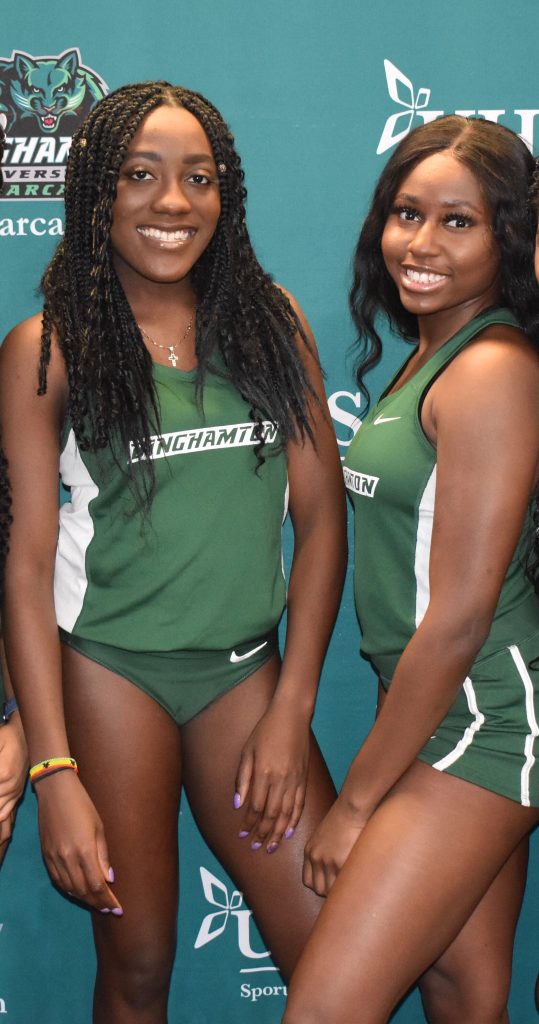Senior Brittany Korsah began her tenure as a Binghamton student-athlete in 2017 when she committed to the track and field team. Many universities offer beautiful facilities and academic prestige to recruit student athletes, but when Korsah came to Binghamton University, something else stuck out to her.
“One thing that really made me want to come here is I saw that people looked like me,” Korsah said.
In the fall of 2019, Korsah was having a conversation with one of her friends who told her that there was a club on Stony Brook University’s campus called Student Athletes of Color for Success. Korsah immediately brought the idea to teammates Janelle Williams, ‘20, and junior Tyler Shepherd, and in June, the idea became a reality. The three athletes co-founded BU Student Athletes of Color for Success (S.A.C.S.).
The athletes had some help getting the organization off the ground. Shepherd, the vice president of the organization, said that after his freshman year, he began to reflect on who he was as a person and who he wanted to surround himself with and began having conversations about this with his assistant coach, Jesse Fuca.
“Growing up black in America is different than growing up white, and our problems we can tell other people, but they can’t relate to it,” Shepherd said.
Shepherd expressed to Fuca that he was frustrated by this and wanted a place to build a community of student-athletes of color who feel comfortable with each other. With Fuca’s help, Korsah, Shepherd and Williams did just that.
Korsah, the president of BU S.A.C.S., said that the main purpose of the club is to act as a safe space for people of color. She also noted how important the alumni network is to the organization. Williams, who graduated in May, is currently acting as the alumna advisor for the organization.
“We want this [club] to be a place where we can have a strong alumni network, so we plan on having other people of color who were student-athletes come in and talk to everyone and just build a network so that we have opportunities for the future,” Korsah said.
In addition to this, the Binghamton S.A.C.S. Instagram page states the four main missions of the organization are to foster a community of solidarity among student-athletes of color within athletics, to create a space where experiences and issues regarding race can be discussed, provide student-athletes of color with opportunities for growth and development and empower student-athletes of color to strive for success in every regard.
The group also wants to work with other clubs on campus and different communities in the Binghamton area.
“We want to mentor other communities like Binghamton High School or organizations involving kids just to help them find a place where they’ll feel comfortable,” Korsah said. “We really want this club to bring about a change on campus and in the community and create a better place for our student athletes of color.”
BU S.A.C.S. is also committed to affecting social change through athletics. Recently, the organization put out a statement demanding justice for Jacob Blake, a 29-year-old Black man who was shot seven times in the back by Kenosha, Wisconsin police officers on Aug. 23.
Shepherd said that he believes that athletes have the power to change the world, especially with their status in society.
“There are a lot of people out there who seem to be under the notion that these athletes are athletes and entertainers first and Black men second,” Shepherd said. “When they’re on the streets, off the courts and outside of the athlete world, they’re just a Black man or a Black woman. To people who say athletes shouldn’t be a part of politics, first off, it’s not even politics, it’s human rights. Second, they’re Black people first, so they have the right to be able to share their voice and say what they want to say on a topic as long as it’s positive and provoking good change.”
Korsah believes this is all the more reason to build a student-athlete community where people of color can feel safe.
“We’re not only athletes,” Korsah said. “We’re also people of color. We’re people, so how can we be expected to play and be focused on our game when there’s stuff happening in the world against our own people?”



